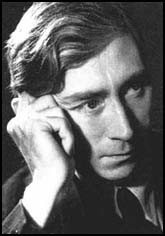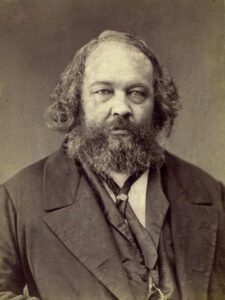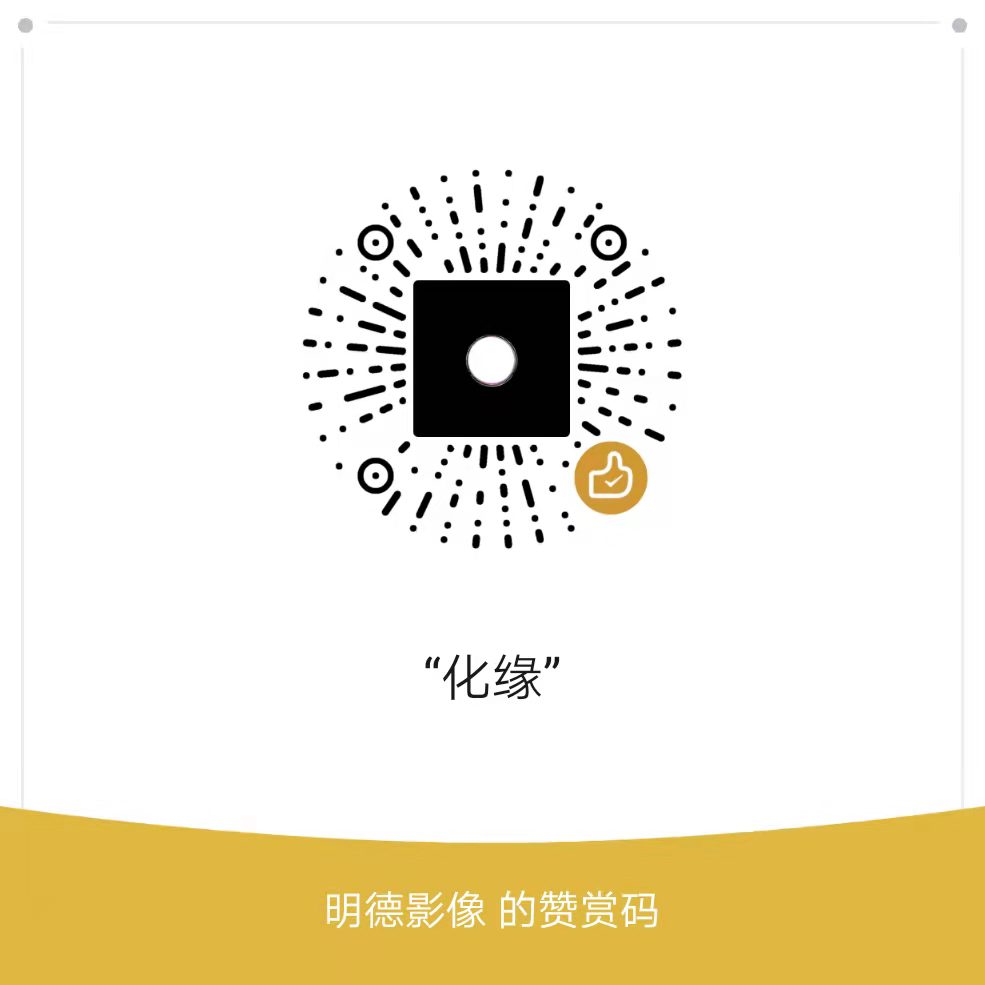翻译:沙皮狗
随着这本书的出版,一个多世纪以来压迫欧洲人思想的阴云开始散去。在经历了一个焦虑、绝望和虚无主义的时代之后,似乎终于可以再次获得希望——对人类和未来再次拥有信心。加缪先生并没有通过修辞或任何说服技巧向我们传递信息,而是通过他清晰的智慧。他的书是一部充满逻辑的作品。正如他的早期作品《西西弗斯神话》中思考生存或不生存,即自杀行为的含义,这部作品则是对忍受或不忍受做出思考,即反抗行为的含义。如果我们决定活下去,那一定是因为我们已经决定:我们的个人存在具有某种积极价值;如果我们决定反抗,那一定是因为我们已经决定:人类社会具有某种积极价值。但在每一种情况下,这些价值都不是“给定”的——那是宗教或哲学所玩弄的幻术。它们必须从生活条件中推导出来,并与有限性所带来的痛苦一起被接受。社会价值是一种行为准则,它暗示着一种悲剧性的命运;同时它们也提供一种创造(creation,宗教意义上的)之希望。
《反抗者》为我们提供了一种政治哲学。这是一种只会在法国出现的书,以一种充满激情的智性察觉,致力于研究自由和恐怖等概念。这并不是说它是一部理论著作——相反,它是在过去两个世纪社会发展明确的历史知识基础之上,考察当今欧洲的实际情况。它是“理解时代的一种尝试”。
加缪认为,反抗是人类的“基本面向”之一。不能否认它的历史现实——相反,我们必须在它身上寻求一种存在的原则。但在我们的时代,反抗的性质已经发生了根本性的变化。它不再是奴隶对主人的反抗,甚至也不是穷人对富人的反抗;它是一种形而上的反抗,是人对生活条件、对创造(creation)本身的反抗。同时,它也是对思想的清晰和统一的渴望,甚至——有点矛盾——是对秩序的渴望。至少,这是它在加缪思想的指导下所形成的。
他回顾了这一形而上学反抗的历史,从萨德的绝对否定开始,到波德莱尔和“花花公子”(dandies),然后是施蒂尔纳、尼采、劳特雷蒙和超现实主义者。他对这些预言家的态度并非不近人情,再次考察安德烈·布勒东对当代人的影响是很有意思的。然后,加缪转向政治意义上的反抗历史,他的主要目标是在反抗和革命之间做出明确区分。加缪的思想在此不是第一次接近于无政府主义,因为他认识到革命总意味着建立一个新的政府,而反抗是没有计划的行动——是自发的抗议。加缪回顾了法国大革命的历史,回顾了弑君者和杀戮者的历史,并展示了从卢梭到斯大林,革命的进程如何不可避免地走向了专制独裁。圣-朱斯特(Saint-Just)是列宁的先驱。即使是巴枯宁(Bakunin),加缪用了一些极其有趣的篇幅来描述他(例如,指出在他的时代,只有他以非凡的深刻性向科学的偶像崇拜宣战)——即使是巴枯宁,如果我们研究他起草的国际兄弟同盟章程(1864-7),就会发现他坚持个人绝对服从于中央行动委员会。
加缪指出,现代的所有革命都导致国家权力的加强。“现代国家权力的这奇特而骇人的扩张,可视为技术上、哲学上过度巨大的野心在逻辑上必然的结论,这结论和真正的反抗精神南辕北辙,然而却是它带动了我们这时代的革命精神。马克思预言式的梦想、黑格尔或尼采有力的预测,再上帝之城消灭之后,终于催生出一个理性或非理性的国家——然而这二者都是恐怖主义的国家”。反法西斯主义革命也只是强化了这种一般性的看法。
加缪在最后几页显示了他思想的真正力量。根据本书所列举的事实,人们很容易陷入绝望或不作为。加缪ti huan l“限度”的概念。“我们现在知道,革命若只讲求历史效率而无其他限度,意味着无限度的奴役。革命精神若想摆脱这个命运,维持生命力,就应该回到反抗的本源,汲取忠于本源的唯一思想,也就是关于限度的思想。”为了说明他的意思,加缪提到了辛迪加主义,这种政治运动以细胞的有机统一为基础,否定抽象的和官僚的中心主义。他引用了托兰的话。”Les êtres humains ne s’émancipent qu’au sein des groupes naturels“——人类只有在自然团体的基础上才能解放自己。“公社对抗国家……审慎的自由对抗理性的专制,利他的个人主义对抗群众的奴役,这些二分的矛盾再次显示了自西方历史以来层出不穷、介于适度与过度之间长久的对立”(参考严慧莹版翻译)。这种“中庸之道”(“mesure”)的传统属于地中海世界,并被德国意识形态中的过度和基督教的他世(otherworldliness)——被对自然的否定所摧毁。
限度不是反抗的反面。反抗带有限度的理念,而“反抗创造出的限度,也只能透过反抗表现出来,它是由智慧激发与掌控的恒久冲突……不论我们做什么,‘过度’始终在我们心中占据一块角落,孤独的那个角落。我们身上都背着我们的艰辛、罪恶与造成的灾祸,但我们的任务不是使之在世界上作乱,而是在自身、在其他人身上与之挣扎搏斗。反抗,如同巴雷斯所说,是持续了一整个世纪不屈服的意志,在今日依然是这个搏斗的原则。反抗是各种形式之母,真正生命的泉源,它让我们在混沌狂暴的历史运动中永远挺立”。
在他的最后几页,加缪的雄辩上升到了令人振奋的高度。这是一本鼓舞人心的书。这本书尤其应该给所有希望看到反抗那种与生俱来的力量,那些被一种新的行动精神所启发——那些明白“没有一种特别的爱,反抗不可能存在”的人。不斤斤计较,奉献一切给为生命和活生生的人——这样我们就能表明,“对未来的真正慷慨大度,就是为当下献出一切”。
(译注:加缪《反抗者》原文均参考台湾严慧莹版翻译)
原文:
With the publication of this book a cloud that has oppressed the European mind for more than a century begins to lift. After an age of anxiety, despair, and nihilism, it seems possible once more to hope—to have confidence again in man and in the future. M. Camus has not delivered us by rhetoric, or by any of the arts of persuasion, but by the clarity of his intelligence. His book is a work of logic. Just as an earlier work of his (Le Mythe de Sisyphe) began with a meditation on living or not living—on the implications of the act of suicide—so this work begins with a meditation on enduring or not enduring—on the implications of the act of rebellion. If we decide to live, it must be because we have decided that our personal existence has some positive value; if we decide to rebel, it must be because we have decided that a human society has some positive value. But in each case the values are not “given”—that is the illusionist trick played by religion or by philosophy. They have to be deduced from the conditions of living, and are to be accepted along with the suffering entailed by the limits of the possible. Social values are rules of conduct implicit in a tragic fate; and they offer a hope of creation.
The Rebel, that is to say, offers us a philosophy of politics. It is a kind of book that appears only in France, devoted, in a passionate intellectual sense, to the examination of such concepts as liberty and terror. Not that it is a theoretical work—on the contrary, it is an examination of the actual situation of Europe today, informed by a precise historical knowledge of the past two centuries of its social development. It is “an attempt to understand the times.”
Camus believes that revolt is one of the “essential dimensions” of mankind. It is useless to deny its historical reality—rather we must seek in it a principle of existence. But the nature of revolt has changed radically in our times. It is no longer the revolt of the slave against the master, nor even the revolt of the poor against the rich; it is a metaphysical revolt, the revolt of man against the conditions of life, against creation itself. At the same time, it is an aspiration toward clarity and unity of thought—even, paradoxically, toward order. That, at least, is what it becomes under the intellectual guidance of Camus.
He reviews the history of this metaphysical revolt, beginning with the absolute negation of Sade, glancing at Baudelaire and the “dandies,” passing on to Stirner, Nietzsche, Lautréamont, and the surrealists. His attitude to these prophetic figures is not unsympathetic, and once more it is interesting to observe the influence of André Breton on the contemporary mind. Camus then turns to the history of revolt in the political sense, his main object being to draw a clear distinction between rebellion and revolution. Here, and not for the first time, Camus’s ideas come close to anarchism, for he recognizes that revolution always implies the establishment of a new government, whereas rebellion is action without planned issue—it is spontaneous protestation. Camus reviews the history of the French Revolution, of the regicides and deicides, and shows how inevitably, from Rousseau to Stalin, the course of revolution leads to authoritarian dictatorship. Saint-Just is the precursor of Lenin. Even Bakunin, to whom Camus devotes some extremely interesting pages (pointing out, for example, that he alone of his time, with exceptional profundity, declared war against the idolatry of science)—even Bakunin, if we examine the statutes of the Fraternité Internationale (1864–7) which he drew up, is found insisting on the absolute subordination of the individual to a central committee of action.
All revolutions in modern times, Camus points out, have led to a reinforcement of the power of the State. “The strange and terrifying growth of the modern State can be considered as the logical conclusion of inordinate technical and philosophical ambitions, foreign to the true spirit of rebellion, but which nevertheless gave birth to the revolutionary spirit of our time. The prophetic dream of Marx and the over-inspired predictions of Hegel or of Nietzsche ended by conjuring up, after the city of God had been razed to the ground, a rational or irrational State, which in both cases, however, was founded on terror.” The counterrevolutions of fascism only serve to reinforce the general argument.
Camus shows the real quality of his thought in his final pages. It would have been easy, on the facts marshaled in this book, to have retreated into despair or inaction. Camus substitutes the idea of “limits.” “We now know, at the end of this long inquiry into rebellion and nihilism, that rebellion with no other limits but historical expediency signifies unlimited slavery. To escape this fate, the revolutionary mind, if it wants to remain alive, must therefore return again to the sources of rebellion and draw its inspiration from the only system of thought which is faithful to its origins: thought that recognizes limits.” To illustrate his meaning Camus refers to syndicalism, that movement in politics which is based on the organic unity of the cell, and which is the negation of abstract and bureaucratic centralism. He quotes Tolain: “Les êtres humains ne s’émancipent qu’au sein des groupes naturels”—human beings emancipate themselves only on the basis of natural groups. “The commune against the State … deliberate freedom against rational tyranny, finally altruistic individualism against the colonization of the masses, are, then, the contradictions that express once again the endless opposition of moderation to excess which has animated the history of the Occident since the time of the ancient world.” This tradition of “mesure” belongs to the Mediterranean world, and has been destroyed by the excesses of German ideology and of Christian otherworldliness—by the denial of nature.
Restraint is not the contrary of revolt. Revolt carries with it the very idea of restraint, and “moderation, born of rebellion, can only live by rebellion. It is a perpetual conflict, continually created and mastered by the intelligence.… Whatever we may do, excess will always keep its place in the heart of man, in the place where solitude is found. We all carry within us our places of exile, our crimes and our ravages. But our task is not to unleash them on the world; it is to fight them in ourselves and in others. Rebellion, the secular will not to surrender of which Barrès speaks, is still today at the basis of the struggle. Origin of form, source of real life, it keeps us always erect in the savage, formless movement of history.”
In his last pages Camus rises to heights of eloquence which are exhilarating. It is an inspiring book. It is particularly a book that should be read by all those who wish to see the inborn impulse of revolt inspired by a new spirit of action—by those who understand “that rebellion cannot exist without a strange form of love.” Not to calculate, to give everything for the sake of life and of living men—in that way we can show that “real generosity toward the future lies in giving all to the present.”
Herbert Read

赫伯特·爱德华·瑞德爵士(Herbert Read, DSO,MC(/riːd/;1893年12月4日-1968年6月12日)是英国艺术史学家、诗人、文学评论家和哲学家,以众多关于艺术的书籍而闻名,其中包括关于艺术在教育中的作用的有影响力的书。雷德是当代艺术研究所的共同创始人。除了是英国著名的无政府主义者,他也是最早注意到存在主义的英国作家之一。他与迈克尔·福德姆共同编辑了《荣格作品集》的英国版。

米哈伊爾·亞歷山德羅維奇·巴枯寧(俄語:Михаил Александрович Бакунин,IPA:[mʲɪxɐˈil ɐlʲɪkʲsɐnʲtrəˈfit͡ɕ bɐˈkunʲɪn],1814年5月30日-1876年7月13日),俄國思想家、革命家、社會主義者、無政府主義者、集體無政府主義思想創立者。他被認為是無政府主義最具影響力的人物之一,是革命社會主義和社會無政府主義理論的主要創立者[4]。巴枯寧作為革命者的威望也使他成為歐洲最著名的思想家之一,他的思想影響了許多俄國和歐洲的激進分子。
巴枯寧在特維爾省的普里亞穆赫諾家庭莊園中長大。他自1840年起開始在莫斯科上學,然後在柏林繼續學習並希望進入學術界。後來在巴黎他遇到了卡爾·馬克思和皮埃爾-約瑟夫·普魯東,他們對他產生了極大的影響。巴枯寧隨後越來越激進,不再希望進入學術界當教授。隨後他因反對俄國占領波蘭而被驅逐出法國。1849年,他在德勒斯登居住時因曾在捷克參與1848年的叛亂又被驅逐回俄國,隨後先是被俄羅斯當局囚禁在聖彼得堡,從1854年起又被改囚於什利塞爾堡要塞,最後於1857年被流放到西伯利亞。他通過日本逃到美國,然後去了倫敦,在那裡他與亞歷山大·伊萬諾維奇·赫爾岑一起為《鍾》雜誌撰寫文章。1863年,巴枯寧動身前往波蘭參與當地的起義,但他最終並未抵達波蘭,而是在瑞士和義大利間活動。
1868年,巴枯寧加入了國際工人協會,導致無政府主義派的影響力迅速增長。1872年的海牙大會被巴枯寧派和馬克思派之間的鬥爭所主導,馬克思是國際工人協會總委員會的關鍵人物,主張利用國家來實現社會主義。另一方面,巴枯寧和無政府主義派主張用在工作場所的自治和公社的聯合體來取代國家。由於巴枯寧無法進入荷蘭,無政府主義派在他缺席的情況下輸掉了海牙大會上的辯論。馬克思因認為巴枯寧在國際工人協會內組建了一個秘密組織而將後者開除出協會,隨後巴枯寧於1872年創立了反權威主義協會。巴枯寧自1870年開始撰寫更長的著作,如《國家制度和無政府狀態》和《上帝與國家》,且他繼續親自參與歐洲工人和農民運動。1870年,他參與了法國里昂的一次叛亂。巴枯寧曾試圖參加義大利博洛尼亞的無政府主義叛亂,但他不斷變糟的健康狀況迫使他返回瑞士。1876年,巴枯寧於瑞士伯爾尼去世。
巴枯寧因在無政府主義發展中起到了重要作用而被人們銘記,他反對馬克思主義和無產階級專政,且預言馬克思主義的政權將對無產階級進行專政而非由無產階級進行專政。他的《上帝與國家》一書已被翻譯至多種語言,至今仍在發行。在歷史上,巴枯寧的思想對彼得·阿列克謝耶維奇·克魯泡特金、埃里科·馬拉泰斯塔、赫伯特·馬爾庫塞、愛德華·帕爾默·湯普森、尼爾·波茲曼和亞歷山大·薩瑟蘭·尼爾等思想家以及世界產業工人等工團主義組織、西班牙內戰中的無政府主義者和參與現代反全球化運動的當代無政府主義者產生了重要影響[5]。巴枯寧的思想今日仍影響著諾姆·喬姆斯基等無政府主義者[6]。
———
